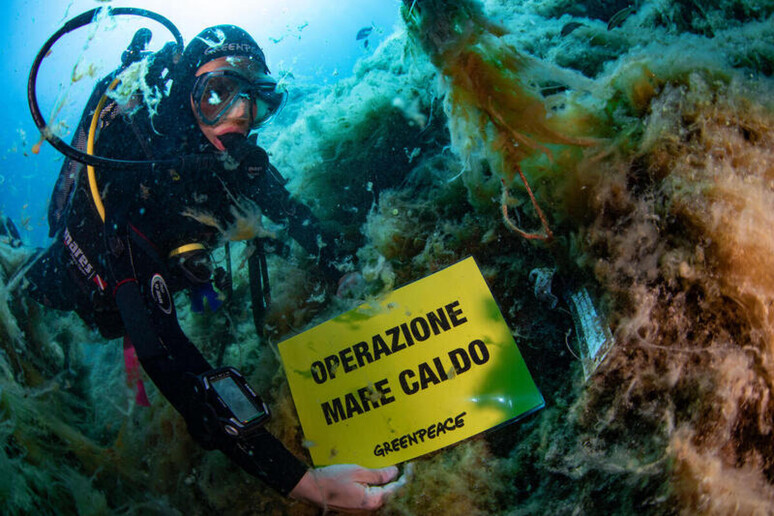(ANSAmed) - ROME, 27 MAG - Italy's seas are feeling the
effects of the climate crisis in a big way, with rising water
temperatures causing drastic changes to marine biodiversity,
according to a new report by Greenpeace.
The second edition of the Mare Caldo (Hot Sea) report, prepared
with the University of Genoa's DiSTAV Earth, Environment and
Life Sciences Department, said species that are sensitive to the
special nature of Italy's seas are disappearing while species
that are better suited to warmer waters, often alien ones, are
proliferating.
Over 530,000 temperatures were taken at different depths and in
different parts of Italy's protected marine areas as part of the
Mare Caldo project.
Among other things, this research detected an abnormal sea water
"heat wave" in June 2020 off the island of Elba and in the
protected marine area of Portofino, with temperatures climbing
by 1.5 degrees centigrade from their monthly average within days
and staying at that level for a period of three weeks.
Gorgonia sea fans, coralline algae and sponges are among the
Mediterranean species showing evident signs of necrosis due to
the increases in temperature, the report said.
On the other hand, the presence of bearded fireworm (Hermodice
carunculata) has increased considerably in Italy's southern
protected marine areas, while some alien species are invading,
such as the Lamprohaminoea ovalis, a gastropod mollusc of
Polynesian origin that has been observed off Elba for the first
time.
"The Mare Caldo project is showing how our seas are also
suffering from the impact of climate change," said Alessandro
Giannì, Greenpeace Italia's campaigns director.
"In order to address this crisis it is now more necessary than
ever to, on the one hand, free ourselves of our reliance on
fossil fuels and, on the other, to protect the more sensitive
marine ecosystems.
"It has been seen that, where we protect biodiversity from the
impact of destructive human activity, organisms are capable of
recovering and adapting to a change which, unfortunately, is
already taking place". (ANSAmed).
ALL RIGHTS RESERVED © Copyright ANSA











